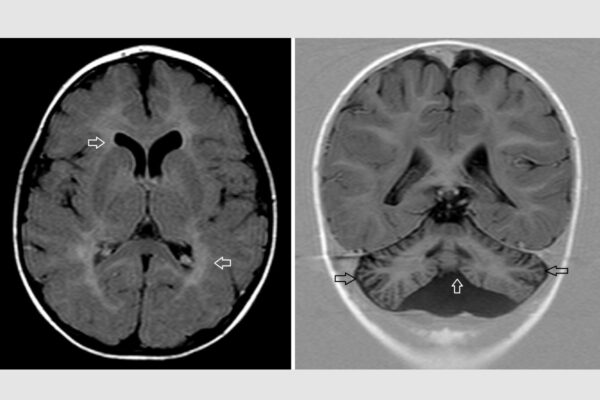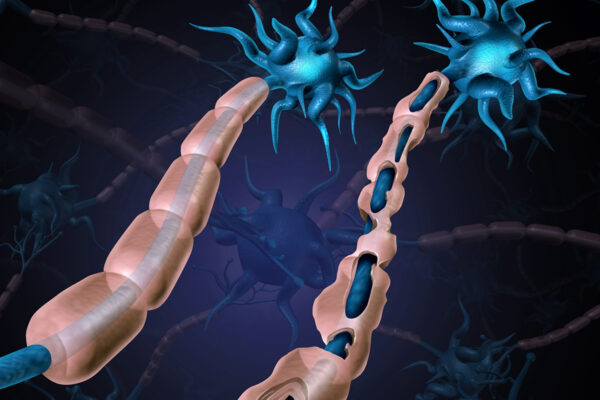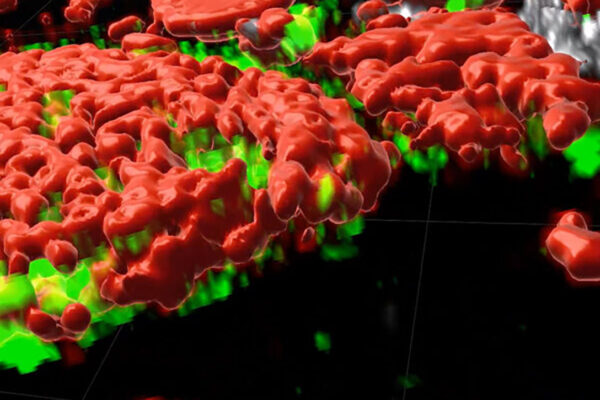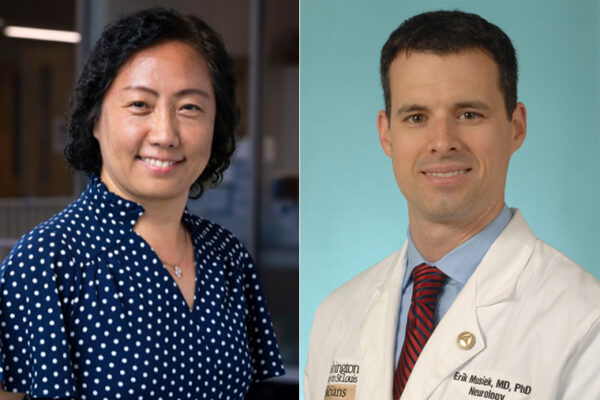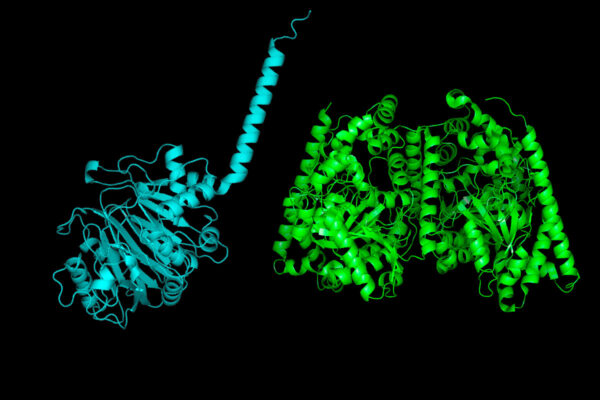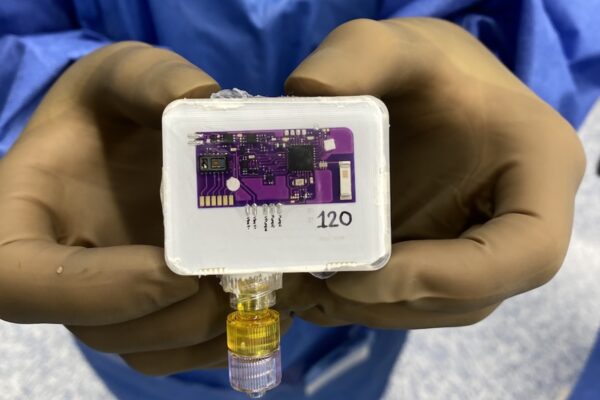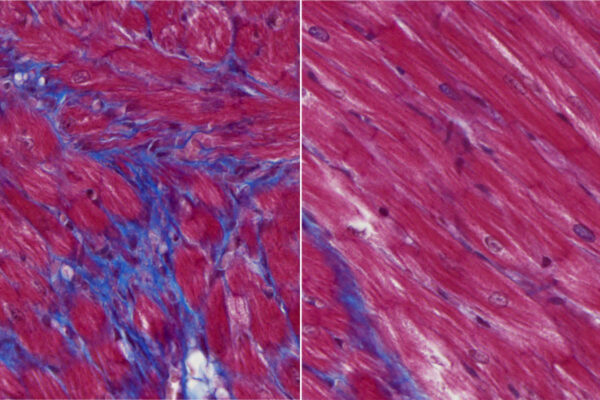Researchers solve medical mystery of neurological symptoms in kids
Researchers at WashU Medicine collaborated with an international team of doctors and scientists to identify the cause of a rare genetic disorder involving intellectual disability and brain malformations.
Jin receives NIH grant to study congenital hydrocephalus
Sheng Chih (Peter) Jin, an assistant professor of genetics at WashU Medicine, has received a $3.2 million grant from the National Institute of Neurological Disorders and Stroke of the National Institutes of Health (NIH) to study the genetic and molecular underpinnings of congenital hydrocephalus.
Four from radiology named Distinguished Investigators
Four WashU faculty members were named Distinguished Investigators by the Academy for Radiology & Biomedical Imaging Research.
Healthy brains suppress inappropriate immune responses
Researchers at WashU Medicine have found a process in which the brain guards against attack by the immune system, opening opportunities to pursue new therapies for diseases such as multiple sclerosis and Alzheimer’s.
Complexity of tumors revealed in 3D
A new analysis led by WashU Medicine researchers has revealed detailed 3D maps of the internal structures of multiple tumor types. These maps could lead to new approaches to therapy.
Zhao, Musiek receive NIH grant to study neurodegenerative diseases
Guoyan Zhao, PhD, and Erik Musiek, MD, PhD, both at WashU Medicine, have received a $433,000 grant from the National Institute on Aging of the National Institutes of Health (NIH) to study brain cells called astrocytes and their roles in neurodegenerative diseases, including Alzheimer’s and Parkinson’s.
Optimizing labor induction focus of WashU Medicine grant
Nandini Raghuraman, MD, and Antonina Frolova, MD, PhD, at WashU Medicine, have received a $2.7 million grant from the National Institute of Child Health and Human Development of the National Institutes of Health (NIH) to study contractions during labor induction.
Beneficial gut microbe has surprising metabolic capabilities
WashU Medicine researchers have discovered a gut bacterial enzyme with previously unknown metabolic capabilities that is associated with the growth benefits of a food therapy for malnourished children.
Implantable device may prevent death from opioid overdose
A team from WashU Medicine and Northwestern has developed an implantable device that, in animal studies, can successfully detect an opioid overdose and administer a lifesaving drug.
Immunotherapy blocks scarring, improves heart function in mice with heart failure
A new study from WashU Medicine researchers finds that a type of immunotherapy — similar to one approved by the FDA to treat inflammatory conditions — may be an effective treatment strategy for heart failure.
View More Stories
